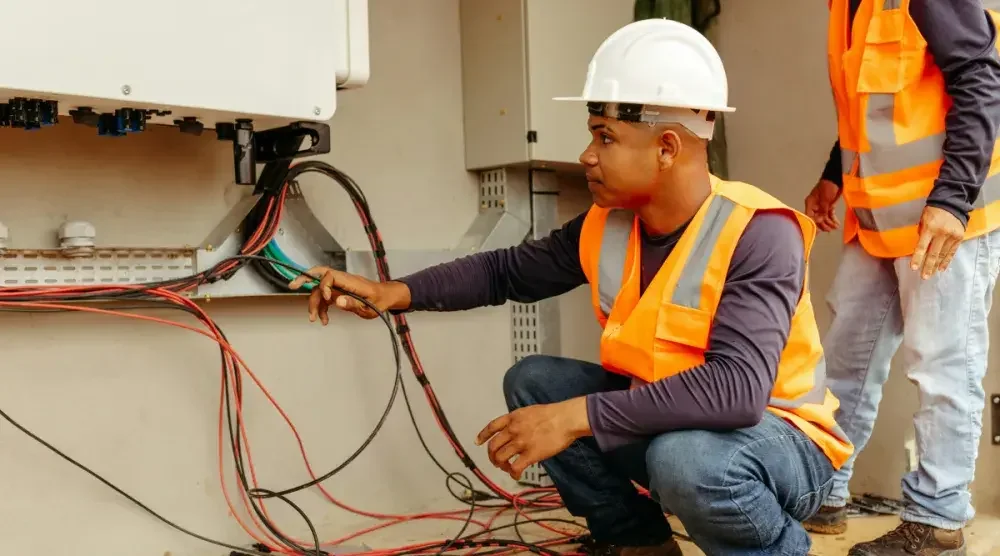As a new business owner, you're responsible for obtaining the correct local, state, and federal licenses for your new enterprise. Getting your licenses and permits helps you avoid fines and penalties and gives your business a sense of legitimacy and credibility.

Do you need a business license in Georgia?
Virtually all businesses need at least one type of license or permit to operate in the Peach State legally. Some businesses only need a local license, while other businesses need additional licenses from the state or federal government. Here’s a breakdown.
Local business licenses
All Georgia businesses need an occupational tax certificate from the city or county where they’re based. An occupational tax certificate may also be called a business license, operating license, or business tax certificate. It certifies that you’ve complied with local codes and state licensing requirements and creates an account for paying local business taxes.
Depending on the type of business you have and where it’s located, you may also need various types of local licenses or permits. These include building and zoning permits, sign permits, and an alcohol license.
State business licenses
There's no statewide general business license, but many businesses need some sort of license or permit from the state. One of the most common is the sales and use tax permit. If you sell goods, you'll need to register for this permit through the Georgia Department of Revenue.
Certain industries and professions must be licensed by state agencies. For example, restaurants, home health care providers, and tattoo parlors need a license from the state health department, while organic farms, animal shelters, and convenience stores are licensed by the Department of Agriculture. Professionals who need a state license include barbers, plumbers, electricians, massage therapists, real estate brokers, general contractors, and accountants. To determine if you need a professional license from the state, check with the Licensing Division of the Georgia Secretary of State’s Office.
Federal business licenses
If your company operates in an industry regulated by the federal government, you’ll need a federal business license. Examples of federally regulated industries include firearms, aviation, commercial fishing, and certain types of agriculture.
How to get a business license in Georgia in 7 steps
Before you can get a general business license, you’ll need to set up your new business and apply for federal and state tax accounts.
Step 1: Establish a name and structure for your business
There are several ways to structure a small business, including a sole proprietorship, general partnership, limited liability company, and corporation. LLCs and corporations are formal legal entities that offer their owners limited liability and potential tax advantages. To set up an LLC or corporation, you must file formation documents with the Georgia Secretary of State.
You don’t have to file any documents to set up a sole proprietorship or general partnership. But if you’ll be using a business name that’s different than your personal name, you’ll need to register a “DBA” or trade name with your county.
Step 2: Get an employer identification number
Businesses that have employees or more than one owner must get an employer identification number (EIN) from the IRS. The EIN is a nine-digit number that identifies your company for federal tax purposes in the same way that a Social Security number identifies an individual. You can obtain an EIN at no charge through the IRS website.
Step 3: Find your business’ NAICS code
Before you can set up a state Department of Revenue account, you’ll need the North American Industry Classification Code (NAICS) for your business. Go to the NAICS website and enter a term that describes your main business activity into the search tool. Scroll through the results to find the code that most closely matches your business.
Step 4: Register with the Georgia Dept. of Revenue
If your business sells goods or operates in certain industries, it must register with and make tax payments to the Georgia Department of Revenue. The Department of Revenue collects sales tax and taxes and fees related to industries such as alcohol and tobacco, transportation services, and hotels and motels.
To set up an online business tax account, provide your business’s name, business structure, EIN, NAICS code, address, the date of your first sales in Georgia, and contact information for your company’s officers and at least one responsible party. Once you’ve completed the registration process, you’ll receive a Georgia tax ID number.
Step 5: Register with the Dept. of Labor (if you have employees)
The Georgia Department of Labor collects unemployment insurance taxes and state withholding taxes for businesses that have employees. You can find out whether you're liable for unemployment taxes, register for an account, and make tax and wage reports at the Department of Labor website. To register, you’ll need your EIN, incorporation date (if applicable), the date you hired your first Georgia employee, the date of your first Georgia payroll, your business address, and information about your business’s owners and officers.
Step 6: Apply for state and federal business licenses, if needed
Before you apply for a general operating license, obtain any required state-level licenses. Many types of businesses—or the professionals who run them—need state licenses, including hair and nail salons, tattoo parlors, restaurants, food trucks, campgrounds, and used car dealers. You may need to show you’ve obtained the necessary state licenses before you can get a general business license from your locality.
Step 7: Apply for local business licenses
The local license that virtually all businesses need is an "occupational tax certificate." You'll obtain it from the county and/or city of your primary place of business. To find out who issues tax certificates in your locality, contact your local chamber of commerce or your city or county government offices.
You may have to meet some legal requirements before applying for a tax certificate. These requirements might include passing a fire inspection, confirming your location meets zoning regulations, and obtaining state professional licenses. Many localities have additional information online about their specific requirements and how to complete your application; you can find them by searching for “occupational tax certificate in [your locality].”
After getting your Georgia business license
Once you get a business license, read up on the requirements to maintain it. These vary depending on the type of license or permit, but might include:
- Displaying the license at your place of business
- Renewing the license, including annual renewal requirements for occupational tax certificates
- For professional licenses, complying with any continuing education or renewal requirements
- Submitting reports or periodically paying taxes
- Providing updated information to the licensing authority if your business’s location or other information changes.
Getting a GA business license the easy way
Getting your business licenses requires research and paperwork, and doing it all yourself isn't always the best option. Legal Zoom helps you identify the licenses you need and manage compliance for a low annual fee. This keeps your business running smoothly and ensures that nothing slips through the cracks.
FAQs
What should I do before getting a business license?
Before applying for a local business license, choose a name for your business, establish a business structure, and obtain an EIN from the IRS. Make sure you’ve obtained any necessary state professional licenses and that your business has complied with other local requirements, such as fire inspections.
How much does it cost to get a GA business license?
License fees vary depending on the type of license and your locality. Your locality may charge registration fees to obtain an occupational tax certificate. After that, you may need to periodically pay taxes based on your business’s gross receipts.
How long does it take to get a business license in Georgia?
Once you’ve submitted your application, you can usually obtain your occupational tax certificate within about two weeks, depending on the locality. Contact your local business licensing agency for more precise processing times.
What happens if you don’t have a business license?
Your city or county may impose fines and penalties if you don't have a current occupational tax certificate and haven't paid your local taxes. Failure to have professional licenses or required permits could lead to fines, business interruptions, or even criminal penalties.

